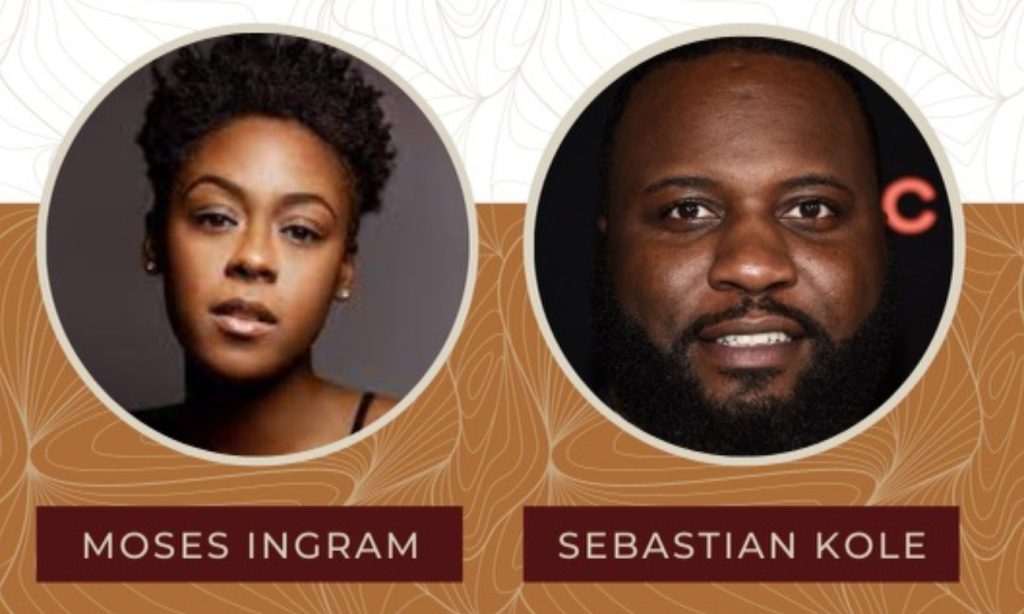Hollywood came to Newton on April 7, and Boston College Law School students were given a front-row seat as two entertainers discussed the importance of legal representation in the film and music industries.
The Sports & Entertainment Law Society invited Moses Ingram and Sebastian Kole to give their takes on lawyers in the entertainment world from the perspective of talent. Ingram, an Emmy-nominated actress recently seen in The Queen’s Gambit and soon-to-star in the the upcoming Obi-Wan Kenobi show on Disney+, and Kole, a Grammy-winning singer-songwriter and producer who co-wrote Alessia Cara’s debut album, were playful and candid as they discussed their behind-the-scenes experiences.
Ingram knew she needed legal representation the first time she was faced with multiple, competing offers at the same time. Kole knew when he received a call on his cell phone directly from Jennifer Lopez’s lawyer on his thirtieth birthday.
“You hear about other actors getting bad deals, and so I was hyper-aware of what was happening around me,” Ingram said. “The people around me get paid based on me getting paid…; vision gets cloudy when more money is involved, and it’s important to trust the people closest to you for that reason.”
Both artists were clear that the entertainment lawyer’s first responsibility is to advocate for their client. “I’ve had arguments with publishers or labels, and my lawyer has always been on my side…; that’s why she’s been by my side for ten years,” Kole said. He went on to say that entertainment lawyers “need vision for your career and their own,” making sure that they help their clients to understand the repercussions of the decisions they make.
Kole went in-depth on the intersection of the legal world and the songwriting process. As songwriters incorporate samples or interpolate earlier songs, the question of who owns a song—and, more importantly, who gets paid—becomes murkier and murkier. Labels might push for the incorporation of a sample into a song because they own the master recording and would earn licensing fees on top of everything else; a songwriter might be wary of such samples in order to preserve their slice of the revenue.
Ingram spoke about how her contract with Disney required her to set aside a number of Instagram posts, and how the personal branding of her social media presence could conflict with the interests of production companies and distributors: “What do I stand for? What do I want to endorse? Lawyers know the loopholes and how to navigate these contracts,” she explained.
When asked to provide some parting advice, Kole expressed the importance of personal branding and networking to make it in the industry as a lawyer. Ingram, on the other hand, favored a lawyer who could translate the “legalese” she would see in email chains without condescending to her. “You want people in the room who know how to deliver bad news as well as the good news,” she said.


